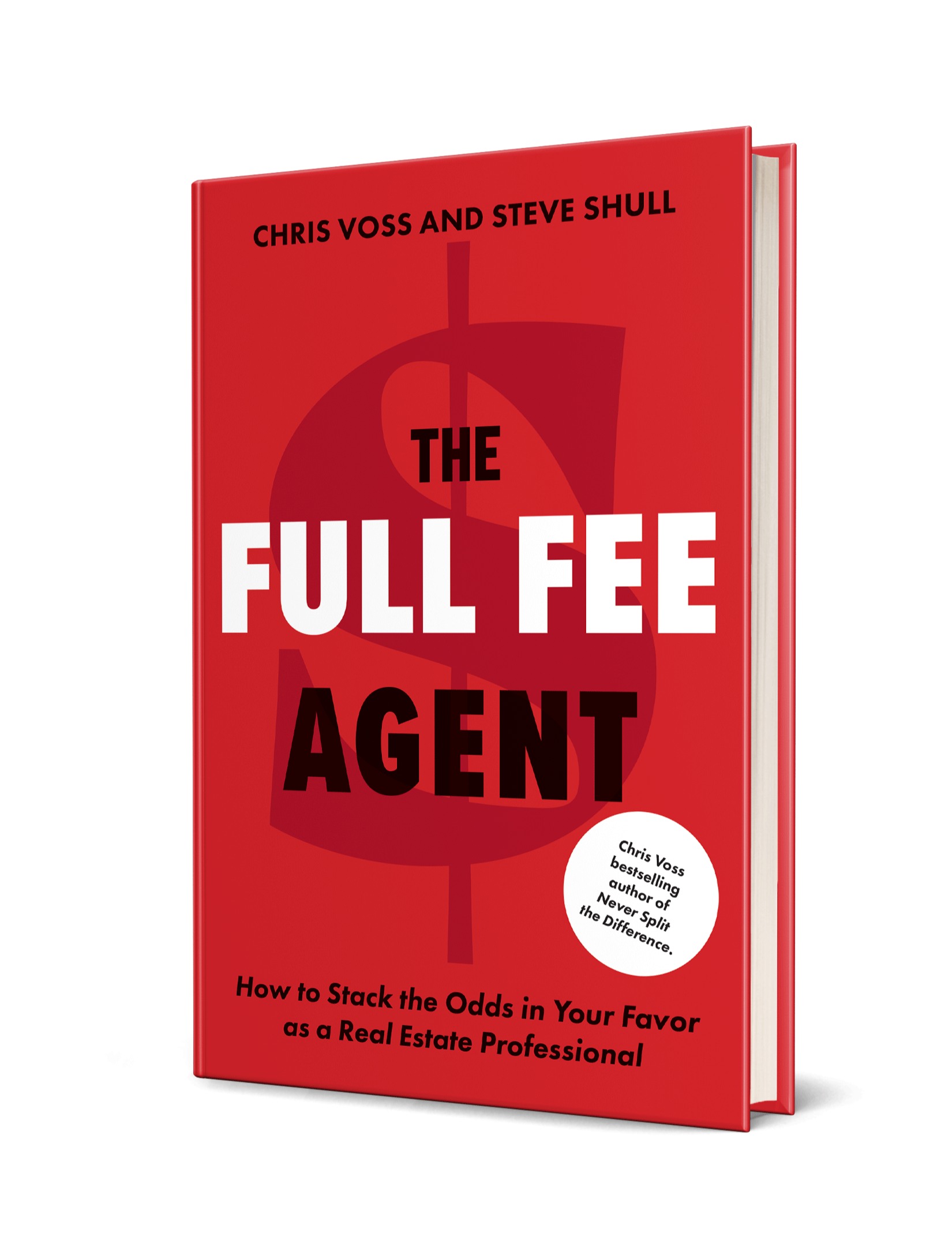Preparing Offers: How to Help Buyers Make the Right Call
Jul 19, 2024
by Laurie Gilmore
The big moment has come…
Your buyer is ready to submit an offer!
Whether there have been months of searching or mere days leading up to an offer submission, there is often a great sense of urgency once a buyer has identified a property. As agents, we find ourselves facing multiple-offer situations, submission deadlines, and client anxiety—all of which conspire together against deliberate, strategic communication.
This is a delicate moment. Your buyer is getting ready to make what is very likely the biggest purchase of their life, and they have probably already gotten emotionally attached to the idea of living in this new home. Emotions are running high, and their decisions about the price and terms of their offer will have a huge impact on whether they get the result they want.
It's yet another situation where you need to navigate those emotions and walk the fine line between helping them make a thoughtful decision and honoring their autonomy.
That's why it's such a crucial moment to use the tools of Tactical Empathy.
Let's look at a framework for approaching this sensitive conversation.
1️⃣ No matter the pressure or time constraints, STOP and EVALUATE.
Think through the situation from your buyer’s point of view. What hopes, dreams and fears did you discuss together in the beginning? How does this property fit into those hopes, dreams and fears? What have they been through, so far, in the process? How have those experiences aligned with their expectations? To what degree has the process they’ve experienced matched up with the landscape you laid out for them? What pressures are they facing?
When you’re thinking through the situation to that degree, you’re naturally building a Summary…and that’s the perfect place to begin with your client.
In person, on Zoom, or on the phone, lay out the Summary.
It may sound something like:
“So far you’ve looked at 16 homes. You shifted away from your original desire for more outdoor space and really fell in love with this area of downtown. You even raised your budget to open up more options for you there. You were very disappointed when you lost the opportunity to bid on X property because it moved too quickly. It seems like that motivated you to skip your planned vacation and focus on the search. Now you’ve found this home that feels like ‘the one.’ It needs some work. You had previously said you did not want to take on any projects, but you feel like this is manageable. It sounds like it’s worth the hassle to you. This is listed near the top of your budget, but you both got a ‘great feeling’ when you walked in, and as a result you feel like you definitely want to move forward with a strong offer.”
When you finish delivering the summary, stop talking. If there is silence, sit with it patiently. Let your client process what you’ve said.
Remember that, in delivering a summary, you are presenting “the world according to them” in your own words, while labeling their emotions and the dynamics of the situation.
The goal here is to get you and your client on the same page before taking the next step of preparing an offer. You do that by recapping what’s brought you to this moment. This is a perfect time for your client to add new thoughts and feelings that they haven’t yet shared, or to correct you if you’ve missed something important, or misinterpreted their feelings.
If they do add new information, or correct what you’ve summarized, label and mirror those additions and corrections until you get a signal that they feel understood—something like “that’s right” or “exactly.”
2️⃣ Then continue, as always, by soliciting their thoughts first.
That might sound something like:
“You’ve probably given a lot of thought to the terms of your offer. Would you mind walking me through what you have in mind?”
The predominant topic here, of course, will likely be the price.
Our buyers very frequently respond with, “What do you think we should do? What do you think is the right number?”
As always, don’t take that bait.
Strongly reassure them that you will share all of your thoughts with them after hearing what they have to say. That may sound something like:
“It seems like you’re interested in my guidance here. I will absolutely share all of my thoughts with you. First, would you object to walking me through what you’re currently thinking about this offer?”
Their response may go in one of a few different directions:
- They may jump right into numbers and share their analysis of where they place the value. (typical of Analysts)
- They may have a very bottom line response like, “Yes, I’m thinking that I want to make the offer that gets me the property.” (typical of Assertives)
- They may launch into the feelings they have about the property, and the hopes and dreams they have for their family connected to this property. (typical of Accommodators)
➡️ If you’re dealing with an Analyst who is sharing their data with you…
Listen and keep up. Label their data. If you have additional data to share which you think is relevant to their decision, share it. That may sound something like:
“It sounds like you’ve come to a valuation based on your analysis of the comparables we previously discussed.”
You may get a, “That’s right.”
Continue with something like: “Would you object to me sharing one other piece of information for you to review?”
Present whatever data you have and then let them think about it, “You’ll probably want to take some time to consider whether or not that affects your final determination on price.”
➡️ If you’re dealing with an Assertive…
They’ll most likely want to get to the bottom line, put the offer together efficiently, and get it delivered.
A few important things to remember about Assertives in regards to negotiations: They see negotiation as intellectual sparring, they want to win above all else, and they could be prone to tunnel vision around a specific goal. And, of course, they must speak first and feel certain that they have been heard.
It is with our Assertive clients that we often fall victim to their sense of urgency to just “get the deal done,” and we may fail to point out important issues for them to consider.
So if your Assertive client is saying, “Let’s just offer the asking price and get this done…”
Don’t let yourself be rushed.
Slow the process down enough to get them focused on any additional important considerations, while remaining efficient, staying on point, and without shooting down their ideas.
That might sound something like:
“It probably seems pretty cut and dried: They’re asking for X. You’re offering X. Done.”
You might get a “That’s right”.
It may be appropriate to follow up with something like, “Would it be irrelevant for me to mention how some other factors may play into the seller’s decision-making?”
If no, then continue presenting whatever pertinent information you may have. It could include things like:
“The seller has called for best and final offers on X date. That means you may not have the chance to negotiate with this seller.”
“It sounds like this is a multiple-bid situation. It seems like the listing price makes sense to you as a maximum bid. It probably makes no sense to you that other buyers could be thinking differently, and may offer more.”
“With multiple offers, it’s very possible that the seller will receive a mix of financed and all-cash offers. Would it be unreasonable to assume that they might place a high value on the speed and simplicity of cash?”
➡️ With your Accommodator client…
Make them feel understood by mirroring and labeling their hopes and feelings. Then use Calibrated Questions to uncover challenges and move them toward implementation.
That may sound something like:
“It sounds like you have your hopes set on this property. It seems like you’re already envisioning your life there. You’re probably going to be heartbroken if your offer is declined. What do you see as your best option here? OR How do you think we can present your offer in the best light?”
With all negotiator types, before you end this discussion, get to the truth about their “walk-away number” by fully exploring their fear of loss.
That could sound like:
“It sounds like you’re comfortable offering 860K as your final bid. Would you hate me for asking a few more questions? How would you feel if you discover, later on, that the property went to the buyer who bid 1MM? Would you have any regrets about not having bid higher? What if that number was 950K? What if it was 900K? What if it was 875K?”
As we discussed in pricing the home with sellers, what you’re doing there is using an anchor to explore the buyer’s true limits. Start high, and work your way down. This exercise helps your buyer to actively explore their true feelings about the point at which the loss of the property vs. the loss of the money intersect.
As you can see, there’s no single script for this conversation.
With Tactical Empathy, there never is, because what you say depends entirely on what your client is expressing to you. The discussion can go in many directions.
That said, there ARE fundamental principles and a basic framework to help you prepare for the conversation and walk that line between guiding your client and allowing them to make their own choices.
Get free coaching in your inbox every week
Stay focused on what truly matters with key highlights and insights from all our coaching programs.


